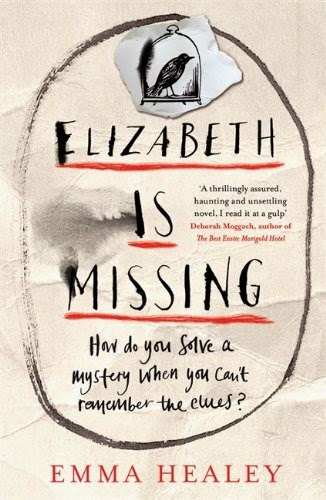One of the tragedies of dementia is the way in which the ordinary is rendered unfamiliar. Names of people and everyday objects are forgotten; life becomes a mystery to be solved. This aspect of the condition is beautifully played out in Elizabeth Is Missing in which eighty-one-year-old Maud attempts to resolve the dual mysteries of the sudden absence of her good friend, Elizabeth, as well as the disappearance of her elder sister in her 1940s childhood. Maud, like a true detective, tells us how she tries
to be systematic, […] to write everything down. Elizabeth is missing and I must do something to find out what’s happened. But I’m so muddled. I can’t be sure about when I last saw her or what I’ve discovered. I’ve phoned and there’s no answer. I haven’t seen her. I think. She hasn’t been here and I haven’t been there. What next? I suppose I should go to the house. Search for clues. And whatever I find I will write it down. I must put pens into my handbag now. The thing is to be systematic. I’ve written that down too. (p22)
The Night Guest also starts with a mystery: Ruth, a seventy-five-year-old widow living alone in a house by the sea, is woken at four in the morning by the noise of a tiger in the next room:
Something large was rubbing against Ruth’s couch and television and, she suspected, the wheat-coloured recliner disguised as a wingback chair. Other sounds followed: the panting of a large animal; a vibrancy of breath that suggested enormity and intent; definite mammalian noises, definitely feline, as if her cats had grown in size and were sniffing for food with huge noses. (p1)
Dementia is also something of a mystery for those who witness the decline in a relative, as explored by a son trying to care for his mother in Scar Tissue:
When I could think about anything at all, I thought that the simplest facts about what had happened would never be clear: when her illness commenced, when she was first aware of it, whether the manner in which she had struggled with it delayed or altered its course in any way; whether the manner in which we cared for her and fought to keep her aware of her surroundings helped to slow its passage through her brain; whether it was an illness of memory or an illness of selfhood. Simple explanations will not do. They fail to accord her the necessary respect. (p170)
Second childhood
In their confusion, decreased competence and need for extra assistance with navigating the tasks of daily life, dementia sufferers might sometimes seem like children. This can cause frustration in relatives as in these two quotes from characters in Getting Away With It:
‘Sounds monstrous, doesn’t it? But it’s maddening, an adult acting like a child. And it isn’t like normal illness, because they won’t get better …’
‘If she were whole, herself, I could argue with her … I want her to be herself again so I can be angry with her properly …’ (p368)
Memories of the distant past are often sharper than those of more recent events, so it makes sense that Maud, in Elizabeth Is Missing, should return to an unresolved issue from her childhood. In The Night Guest, Ruth’s experience of the tiger prowling her lounge is reminiscent of a child’s conjuring of fairies, monsters or an imaginary friend. Unfortunately, her childlike innocence leaves her ripe for exploitation.

































 RSS Feed
RSS Feed





















